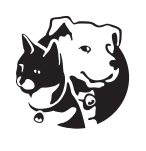Professionalism: More than Just Money
- Jones Animal Behavior

- Apr 15, 2019
- 3 min read
Updated: Feb 19, 2022
If someone needs a thing done but does not want or know how to do the thing, they can hire someone else to do the thing. If enough people want the same thing, the thing becomes a profession. Some things require skill, some require strength. Many things are learned over decades, many others only need days. From astronauts to apple pickers to accountants, there are countless professions out there and even more people doing them. If it’s a job, and you get paid for it, you’re a professional. Though perhaps overly simplistic with many exceptions, that is essentially how it works.
Along this line of thought, at first blush it might seem reasonable that one becomes more professional or perhaps a better professional the longer they do the thing or the more they get paid for doing the thing. However, I’m sure we can agree with a resounding NO that this is not at all the case. I’m also sure we can all think of certain thing-doers out there who are getting paid a ridiculous amount of money and have done the thing for a disturbingly long time, yet are not very good at doing the thing. We can all also probably name several other thing-doers who are exceptionally skilled at the thing yet are barely making ends meet. This might even be you! This disparity applies to pretty much any profession, but perhaps may be even more pronounced among professions that are not at all or not very well regulated. Perfect examples can be found within the companion animal industry. Now if we consider all of these different kinds of thing-doers out there, who are all doing the same types of things, but are doing them with different degrees of ability, and getting paid different amounts: are they all professionals? Well, if they are getting paid for it than, technically, yes. However, I believe that true professionalism is more than just money from doing something.
In my opinion, there is an enormous difference between being A professional, and being professional. Further, this difference is not based on how long you’ve been doing the thing or how much you get paid for the thing. Rather, the difference is based on much more. A few examples are as follows.
Ability. A perfect example of professionalism is being able to do the thing! Having natural abilities is always a really great thing to have, especially when working with animals. One can significantly improve that ability by doing the thing, practicing and modifying to improve efficacy, and pursuing regular and on-going education.
Reliability. A professional shows up, on time, and does what they say they will, and meet or exceed expectations. Organization, realistic awareness of ability and limitations, and many other factors contribute toward reliability. My favorite motto is to always under promise and over deliver.

Communication. How you transfer information to others about yourself, your services, and your ability are critical to being professional. How you write, speak, dress, and act are all forms of communication that occur whether you are at work or at the grocery store. Knowing how much information to give, when to give it and when stay quiet, how to encourage as well as correct, and how to maintain boundaries are all skills any professional will need.
Ethics. Ethics for pet industries are often outlined by certification or education organizations, which many professionals are obligated to adhere to in order to maintain affiliation. Beyond that, it’s up to the professional to decide what they consider right or wrong, in terms of things like refunds, talking about clients to others, talking about other professionals to others, and so on.
Ego. It’s good to be proud of your accomplishments and toot your own horn from time to time. However, bragging and arrogance tend to be signs of less than professionalism. Be willing to admit when you’re wrong, while sticking to your guns when you’re right.
These are just a few ideas to consider in regards to professionalism. For more info, check out my upcoming webinar through Raising Canine on May 1 at 10am central: Keeping it Professional webinar. I will discuss this and more and go into more detail about concepts. My goal herein as well as via the webinar are to try to provide even a single helpful idea for increasing your own professionalism. I love what I do and I want to see everyone succeed at what they do.







Comments